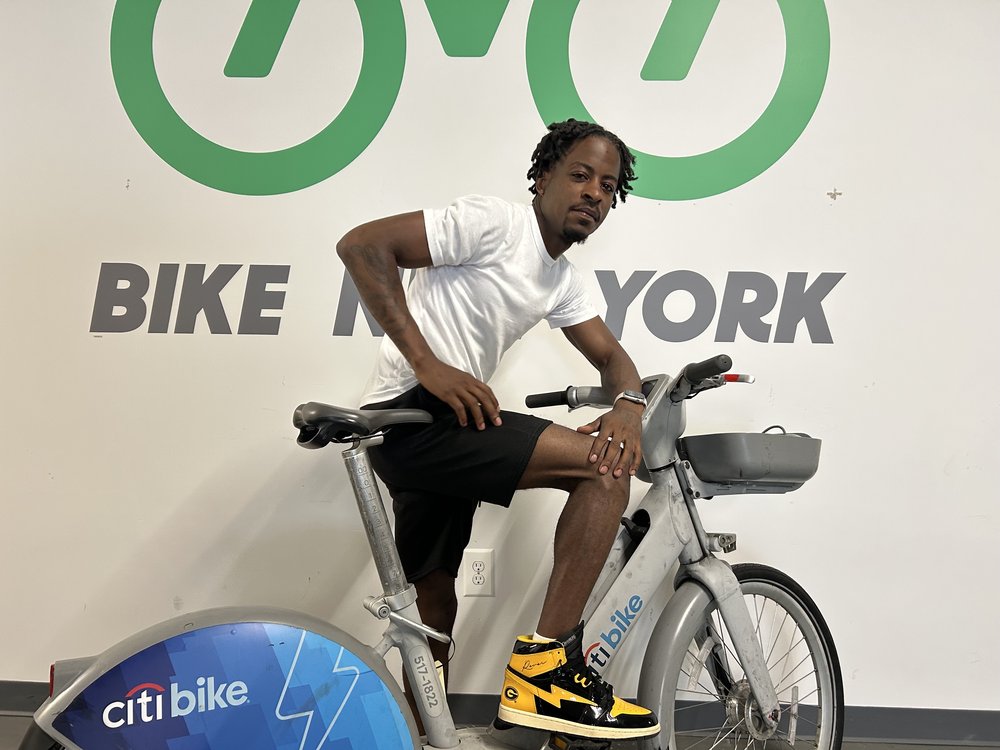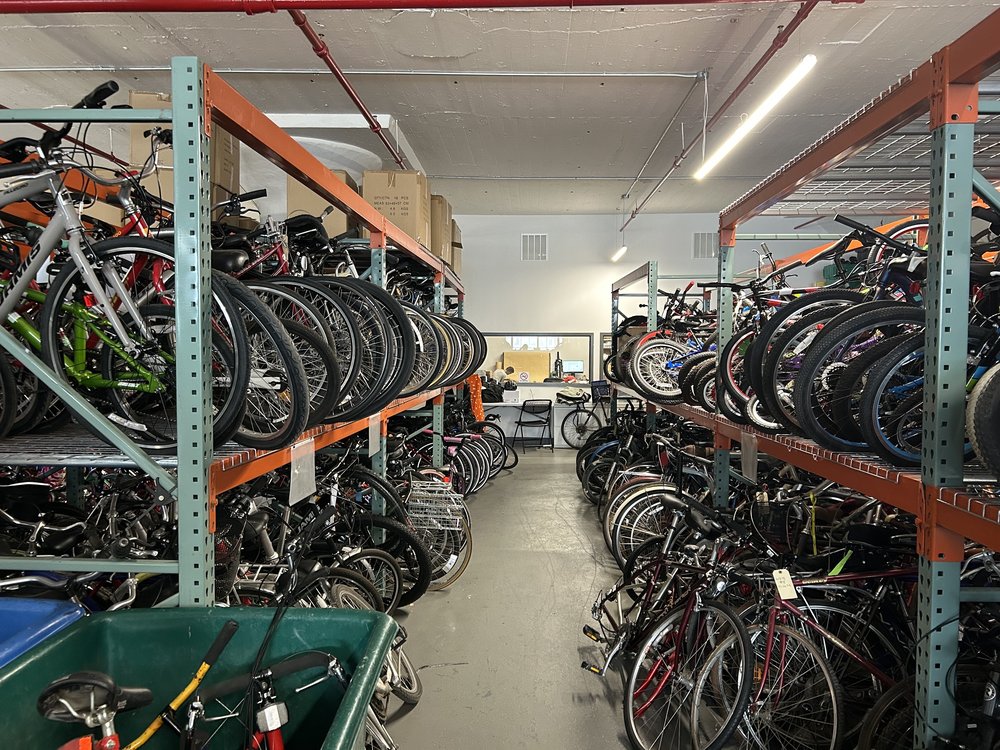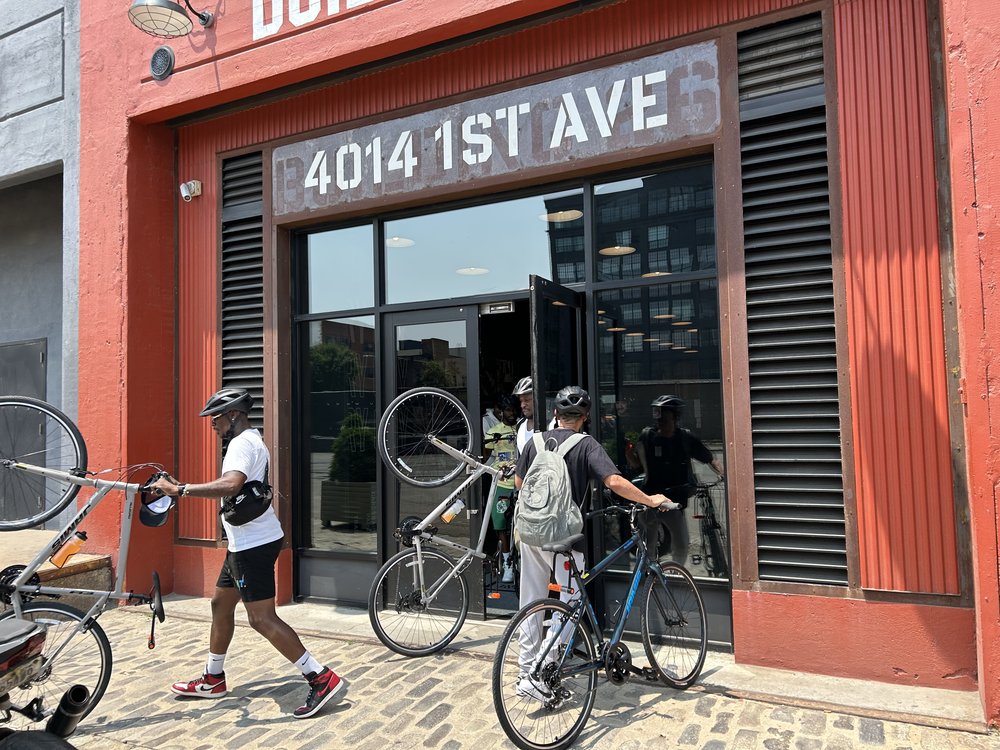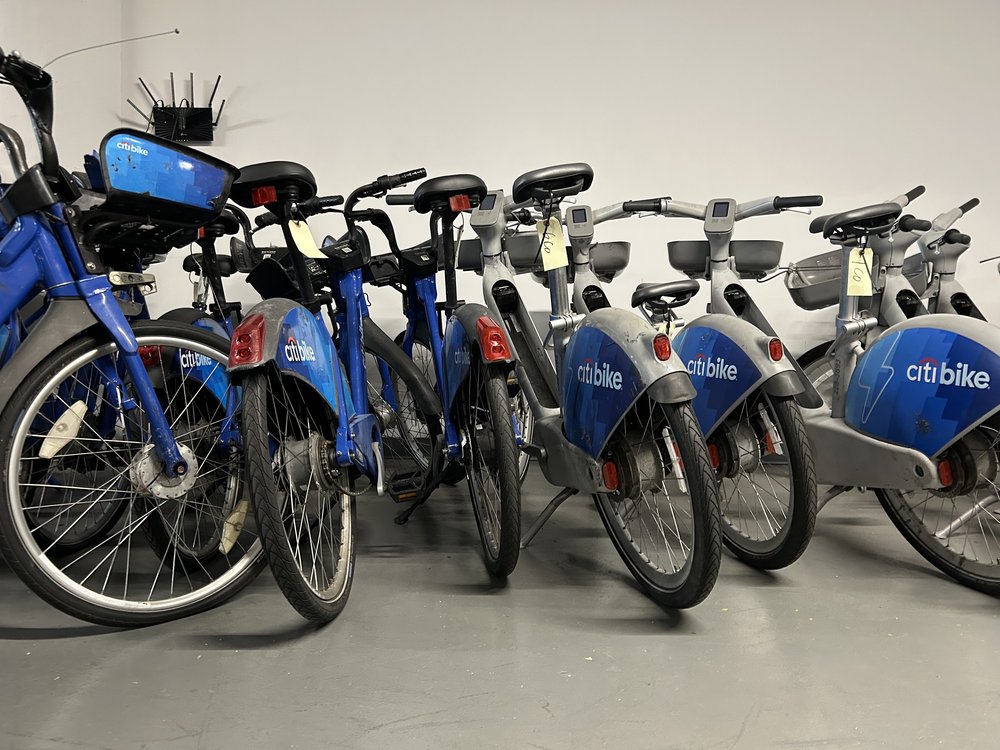For formerly incarcerated New Yorkers, Citi Bike’s growth is a job opportunity
June 20, 2025, 6 a.m.
A nonprofit-run workforce development program is helping to give people with criminal records a second chance.

Lovelle Jones was 16 when he was convicted of murder and began what would be an 18-year stint in prison.
“I was young,” Jones said. “I was engulfed in violence and the street life and the negativity and the gang culture and things of that nature.”
Now, at the age of 34, things appear to have turned around for Jones, who was released from prison in January and hasn’t held a job before. He’s one of 20 men and women wrapping up an innovative workforce development course run by the nonprofit Bike New York, called Bike Path.
The three-week course, which launched in 2019, prepares formerly incarcerated men and women to become certified bike mechanics. Thanks to the steady growth of the Citi Bike program across the five boroughs, the program boasts a nearly 100% job placement rate.

Starting Monday, Jones will begin work at Motivate, a New York-based micromobility company that maintains Citi Bike's bike and e-bike fleet for its parent company, Lyft, as well as fleets in Washington, D.C.; the San Francisco Bay Area; Boston; and Columbus, Ohio.
Most Bike Path graduates employed at Motivate start at $26.75 an hour. For Jones, the work means he’ll be better positioned to pursue his “reintegration into society.”
“I just want to become successful in this free world,” he said.
The jobs — some seasonal positions that eventually turn into full-time ones — can be credited in part to the explosion of micromobility in New York and elsewhere. Since launching in 2013, Citi Bike has grown from a fleet of 6,000 bikes to more than 30,000. It’s now the largest bike-share program in the world outside of China, according to city officials.
That expansion requires more and more certified bike mechanics, who can help maintain the fleet around the clock.
“This initiative is important because it proves second chances benefit everyone,” Patrick Knoth, general manager of Citi Bike, said in a statement. “Bike Path graduates build meaningful careers, Lyft gets access to skilled mechanics for operations, and New Yorkers get a strong, reliable transportation network to pursue their own opportunities across the city."

For many New Yorkers, these would be coveted jobs, but particularly so for the Bike Path students. The unemployment rate for people who have been incarcerated is around 60%, according to 2022 data from the federal Bureau of Justice Statistics, or about 15 times the rate of the general population. This course is designed to close the gap.
Jeremy Lockett, who oversees the Bike Path program, said by the time students step into the class, with their criminal records, “ they've had the door closed on them many times.” As an ice breaker, Lockett said, he opens up about his own childhood.
“ I grew up with my siblings and my biological mother, visiting my own father while he was incarcerated,” he said.

As the course progresses, he said students don’t simply gain mechanical knowledge but also learn how to ask questions without fear and present themselves at the job interview that’s guaranteed to them.
The training has paid off: Between last year and this year, 99% of Bike Path’s students have landed jobs, including all 20 of the men and women in the latest batch. Because of that validation, Lockett said he often witnesses a transformation in his students, many of whom have been dealt “the wrong hand.”
“Many people share, like, ‘Holy smokes, I'm a part of this city,’” he said.
Tia Hopkins, 59, is one of two women in the class.
“ I like hardcore work like this. I like being under a car. I like pulling things apart and trying to put it back together,” Hopkins said.
On the last day of the course the mood was playful. Students hoisted regular and electric Citi Bikes up on racks and gathered around them as they fine-tuned their bike repair skills. A nearby boombox played hip-hop. Students had nothing but praise for the instructors, including Lockett.
“It ain't even just about the bikes, you know what I'm saying? As an individual, if you're having personal problems, he's there for you. He helps out,” Richard Duckett said.
At the end of the final class, with job offers in hand, all the students headed outside with Jamis bikes they’ve received as gifts from the program. Then they hit the road.
“Come on, everybody!” cried one of the students. “Let's go!”
Some of the biggest advocates of the Bike Path program are its alumni.
Stacey Manning, 44, recently marked his first anniversary of working as a bike mechanic at Motivate. It’s the first job he has had, after spending 25 years in prison for murder.
Manning thinks of this job in spiritual terms. After all, he reasoned, these bikes get people around, and it’s partly up to him to keep them safe and alive.
“We're serving a divine purpose and a divine assignment,” he said. “For society.”
Manning said he has been moved by the idea that an employer was willing to give him a second chance. Now, he said, he has little interest in spending his earnings on indulgences — he’s just trying to be there for his mother, in the same way she was there for him even when things weren’t going well.
“ The only thing she said to me,” he said, “and she's constantly saying to me, and I hear her constantly say it to others: ‘I'm proud of my child.’”
Higher Citi Bike prices take effect in NYC: What to know NYC comptroller: Citi Bike service has worsened since Lyft's 2018 takeover